Best
HEADPHONES FOR MUSIC PRODUCTION
-
Overall: Substantial, Yet Highly Portable
-
Best Feature: 50 Mm Drivers Reproduce Audio Without Additive Bass, Mid-Range, Or Highs
-
TedScore™: 8/10
Best
WORKSTATION DAW
-
Overall: Create Fully Immersive Spatial Audio Mixes Using Integrated Dolby Atmos Tools
-
Best Feature: Expanded surround mixer and new 3D Object Panner
-
TedScore™: 9/10
Best
COMPUTER FOR MUSIC PRODUCTION
-
Overall: Ultra High Bandwidth Meets Ultra Versatility.
-
Best Feature: Up To 20 Hours Of Battery Life. Power On.
-
TedScore™: 8.5/10
Plunging into the world of music production or the lively music industry can feel like finding your way through a complicated maze, and it’s definitely not a cheap venture.
You need to know about how to write music, how to record it, how to mix it but also you need to have all the relevant software and hardware.
In short, there’s a lot to know. But fear not. Everything you do need to know is in this article.
What is music production?
The clue is in the name. Music production is the act of creating and recording music.
However, this is also a very simple, perhaps even reductive, definition. The modern-day producer is a jack of all trades.
So if you’re going to get into production, then there’s an awful lot for you to learn.
Let’s start with the most basic question:
What does a music producer do?
These days, the role of producer can involve many things.
The modern-day producer needs to be able to write music, record it, mix it, master it and often, be able to play or program many of the parts in these songs themselves.
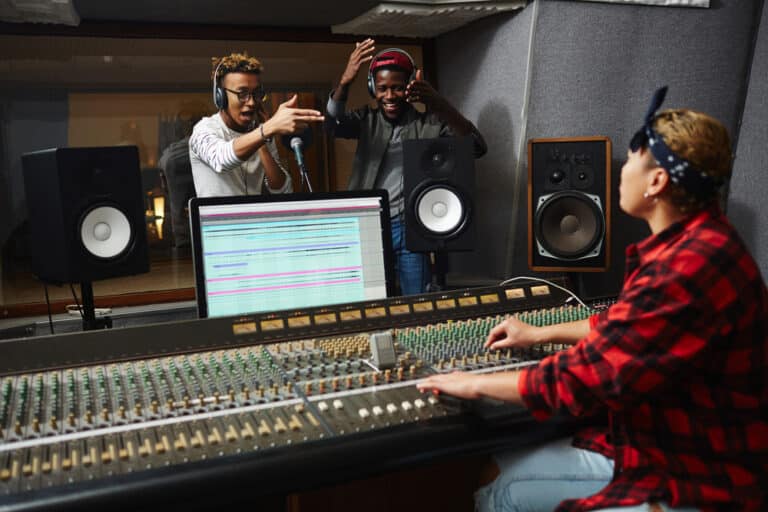
The bare minimum tools required for music production
So now that you understand what music production is and what a music producer does, you should turn your attention to learning what a producer needs to carry out their work.
There are several tools, pieces of gear and bits of knowledge you’ll need to pick up if you want to get into producing.
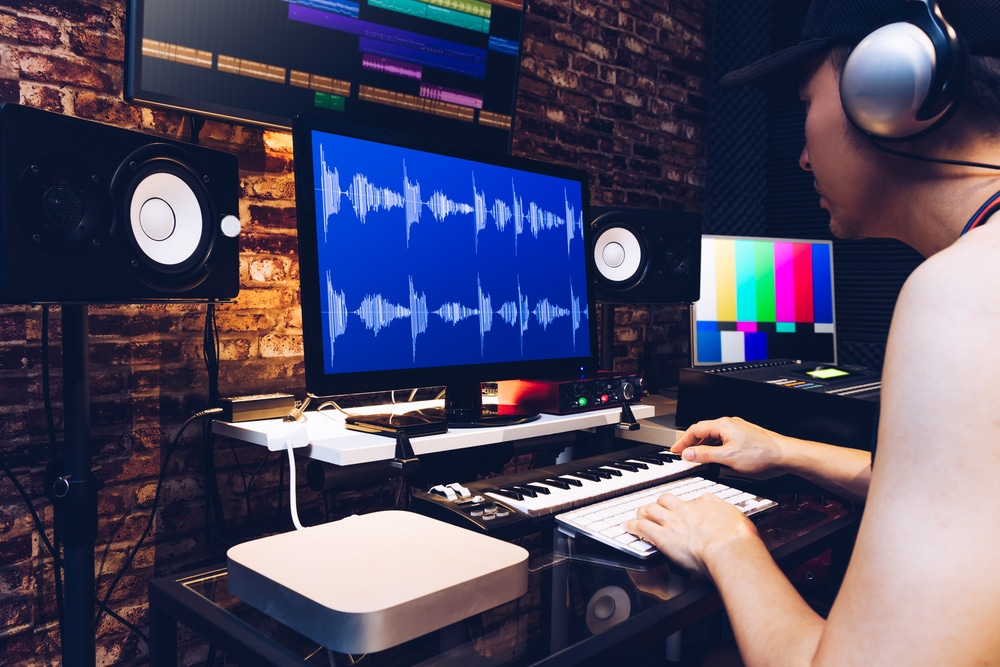
You’ll need to know about music theory, mixing and mastering, what an audio interface is and how to use a midi keyboard.
But before you learn all of that, you first need to learn how to use something called a DAW and you’ll need a good computer to run it on.
So before we learn about DAW’s, let’s first take a look at computers.
Desktop computer or laptop
Many online forums are full of arguments and discussions about what the best computer for producing music is.
Some will say Apple, some will say PC. Some will say laptop, some will say desktop.
So what’s the truth? Which is the best computer for music production style?
The honest answer is that the desktop vs laptop and Apple vs PC debates are red herrings.

You should really be focused on the processing power of the machine you buy.
Things like which DAW you use or whether you prefer the operating system of Apple or from a PC is just personal preference.
But if your computer – whatever it is – isn’t powerful enough to handle the software, samples and plugins you need to produce music, then you won’t get very far at all.
Focus on getting the most powerful machine you can afford. As long as you do that, you’ll have a tool that lasts you a long time.
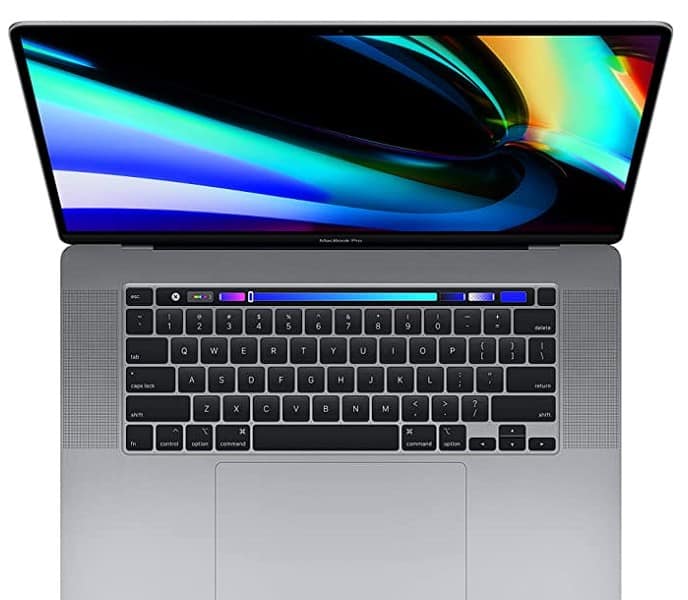
DESIGNED FOR: Logic Users
COMES WITH: Apple Production Software
FEATURES: Many Apple music production software can be used with this
Macbook Pro
When you check the price above, you’ll see there are loads of great places to buy this item. Our personal favorite is Gear4music.
It is the largest music retailer in the UK and fast becoming the most respected online music shop in the US too. Their customer service is excellent, they have competitive prices, really fast shipping, and usually have the longest guarantee.
Most professional musicians use Gear4music, so there is no reason why you shouldn’t too!
- Runs logic pro
- Runs pro tools
- Easy to use
- Expensive
- Can’t run Cubase
The professional musician who wrote this article combined many things,
from the product build, manufacturer’s reputation through to feedback
from other users, to create our famous TedScore™.
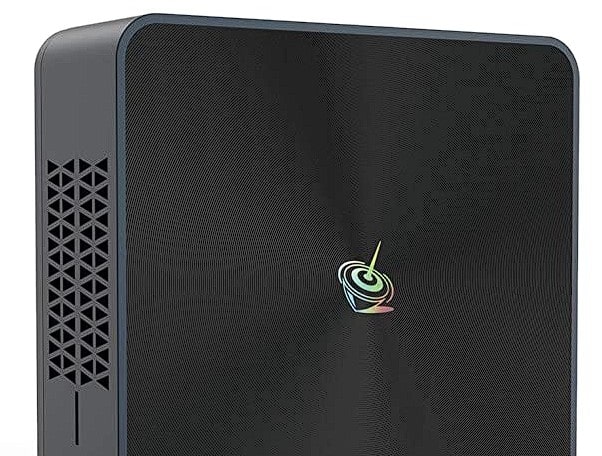
DESIGNED FOR: Entry Level Users
COMES WITH: Custom/Windows Production Software
FEATURES: Often more cost-effective and customisable
Desktop PC
When you check the price above, you’ll see there are loads of great places to buy this item. Our personal favorite is Gear4music.
It is the largest music retailer in the UK and fast becoming the most respected online music shop in the US too. Their customer service is excellent, they have competitive prices, really fast shipping, and usually have the longest guarantee.
Most professional musicians use Gear4music, so there is no reason why you shouldn’t too!
- Runs Cubase
- Runs pro tools
- More affordable
- Not as easy to use
- Can’t run logic
The professional musician who wrote this article combined many things,
from the product build, manufacturer’s reputation through to feedback
from other users, to create our famous TedScore™.
Digital audio workstation software
If you’re going to be a producer, then you’ll need some form of digital audio workstation or DAW for short.
A DAW is essentially a digital recording studio packed with all the features you need to produce music on your computer.
There are several different options on the market, and many are aimed at different kinds of producers.
Here’s a list of the main DAW’s on the market. Take a look and see which one is best for the kind of music you want to produce

DESIGNED FOR: Professionals
COMES WITH: Audio Recording
FEATURES: Excellent for audio recording
Pro Tools
When you check the price above, you’ll see there are loads of great places to buy this item. Our personal favorite is Gear4music.
It is the largest music retailer in the UK and fast becoming the most respected online music shop in the US too. Their customer service is excellent, they have competitive prices, really fast shipping, and usually have the longest guarantee.
Most professional musicians use Gear4music, so there is no reason why you shouldn’t too!
- Integrated sibelius software
- Different packages available to suit your budget
- Complicated to use
The professional musician who wrote this article combined many things,
from the product build, manufacturer’s reputation through to feedback
from other users, to create our famous TedScore™.
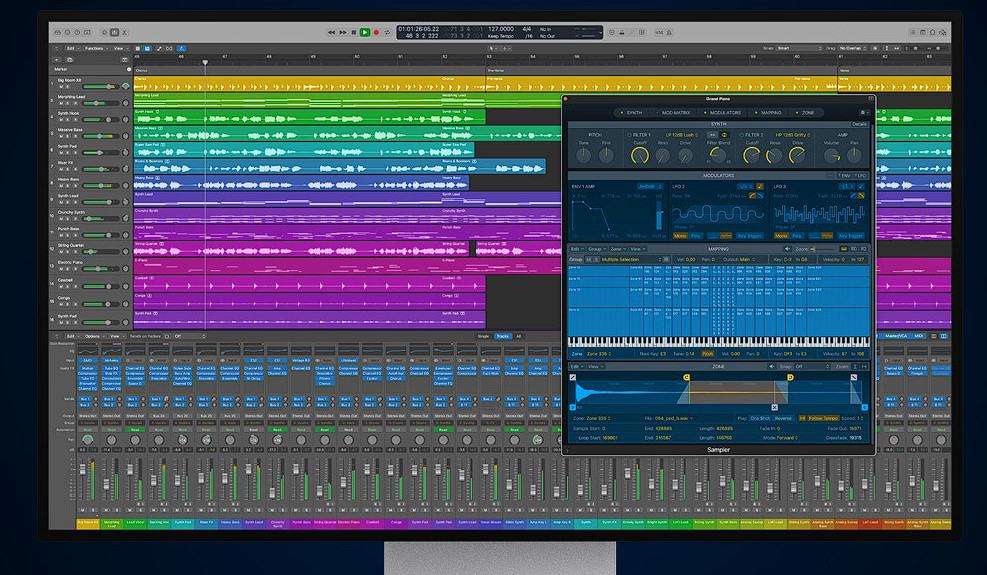
DESIGNED FOR: Professionals
COMES WITH: Audio Recording
FEATURES: Excellent for audio recording
Logic Pro
When you check the price above, you’ll see there are loads of great places to buy this item. Our personal favorite is Gear4music.
It is the largest music retailer in the UK and fast becoming the most respected online music shop in the US too. Their customer service is excellent, they have competitive prices, really fast shipping, and usually have the longest guarantee.
Most professional musicians use Gear4music, so there is no reason why you shouldn’t too!
- Easy to use
- Suitable for all levels
- Great for electronic music making
- Works on mac only
The professional musician who wrote this article combined many things,
from the product build, manufacturer’s reputation through to feedback
from other users, to create our famous TedScore™.
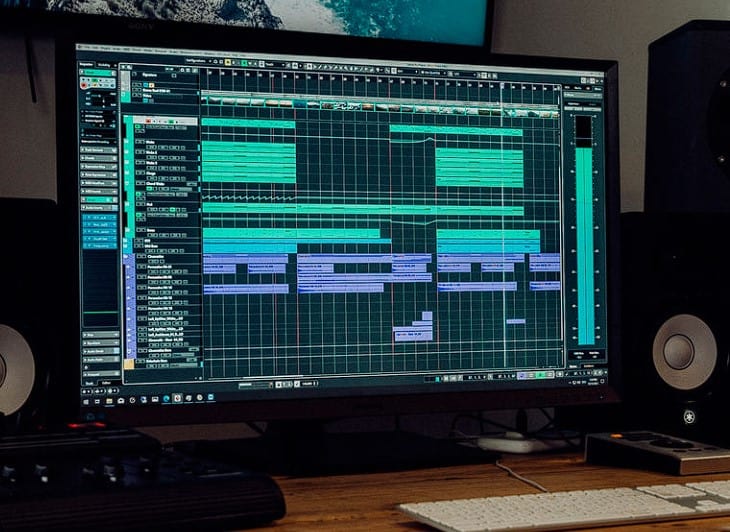
DESIGNED FOR: Intermediates and above
COMES WITH: Audio programming for film and electronic music
FEATURES: Excellent for midi programming
Cubase
When you check the price above, you’ll see there are loads of great places to buy this item. Our personal favorite is Gear4music.
It is the largest music retailer in the UK and fast becoming the most respected online music shop in the US too. Their customer service is excellent, they have competitive prices, really fast shipping, and usually have the longest guarantee.
Most professional musicians use Gear4music, so there is no reason why you shouldn’t too!
- Easy to use
- Great for film music
- Great for electronic music
- Some connection problems with VST’s
The professional musician who wrote this article combined many things,
from the product build, manufacturer’s reputation through to feedback
from other users, to create our famous TedScore™.

DESIGNED FOR: electronic/modern/hip hop producers
COMES WITH: Audio programming for film and electronic music
FEATURES: Ableton Live package has very modern features to use in live performance
Ableton
When you check the price above, you’ll see there are loads of great places to buy this item. Our personal favorite is Gear4music.
It is the largest music retailer in the UK and fast becoming the most respected online music shop in the US too. Their customer service is excellent, they have competitive prices, really fast shipping, and usually have the longest guarantee.
Most professional musicians use Gear4music, so there is no reason why you shouldn’t too!
- Requires minimal music theory
- Great for film music
- Intuitive interface
- Not great for other styles of music
The professional musician who wrote this article combined many things,
from the product build, manufacturer’s reputation through to feedback
from other users, to create our famous TedScore™.
Headphones
The modern music producer often has to work on the go, and this means mixing your tracks in places other than your studio.
However, not all headphones are born equal. To mix effectively, you’ll need a set of monitor headphones that are designed for mixing specifically.
Here’s a great pair of mixing headphones to consider:
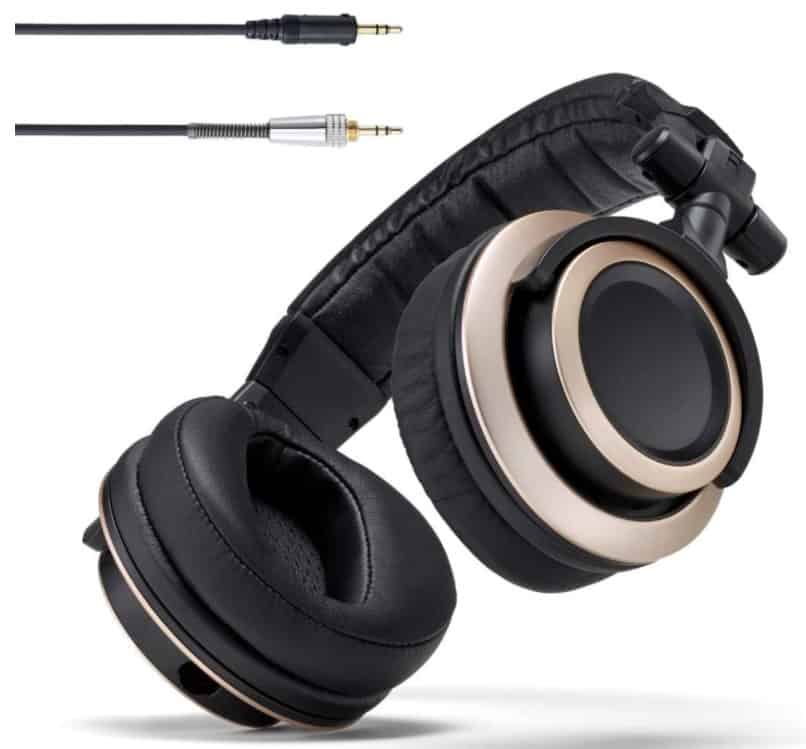
DESIGNED FOR: New Players
COMES WITH: Balance sounding headphone
FEATURES: Clear and balanced sound
Status Audio CB-1
When you check the price above, you’ll see there are loads of great places to buy this item. Our personal favorite is Gear4music.
It is the largest music retailer in the UK and fast becoming the most respected online music shop in the US too. Their customer service is excellent, they have competitive prices, really fast shipping, and usually have the longest guarantee.
Most professional musicians use Gear4music, so there is no reason why you shouldn’t too!
- Ideal for mixing
- Useful for DIY artists/singer-songwriter types
- Affordable
- No accessories included
The professional musician who wrote this article combined many things,
from the product build, manufacturer’s reputation through to feedback
from other users, to create our famous TedScore™.
Speakers
Headphones may not be for everyone. Some will prefer to make music and mix it with speakers, or studio monitors, in their home studio.
After all, mixing and mastering is a very important part of production, so you need to make sure you have the tools that you personally are comfortable with.
Exactly which studio monitors are good is like asking “how long is a piece of string”.
Yes, you can spend thousands on monitors, but monitors will only sound as good as the room they are in. So if you spend 3,000 on some great studio monitors but don’t have an acoustically treated room, you’ll never get the best out of what you’ve bought.
For this reason, many home studios and producers prefer to make music with slightly more modest (but still good quality) speakers.
Here’s one example of such a thing:
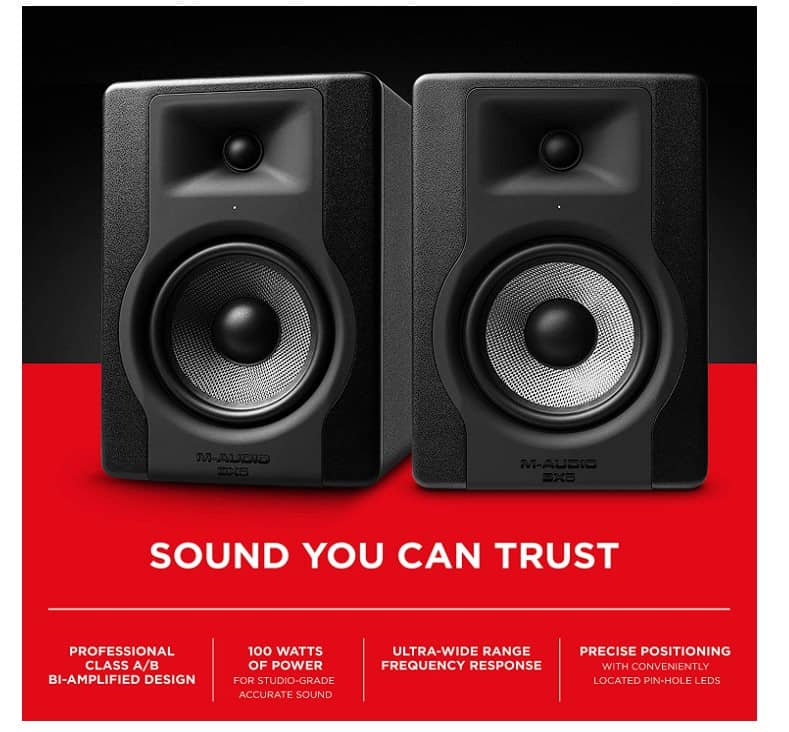
DESIGNED FOR: Home Recording
COMES WITH: Ultra Wide Frequency
FEATURES: Ableton Live package has very modern features to use in live performance
M-Audio BX5 D3
When you check the price above, you’ll see there are loads of great places to buy this item. Our personal favorite is Gear4music.
It is the largest music retailer in the UK and fast becoming the most respected online music shop in the US too. Their customer service is excellent, they have competitive prices, really fast shipping, and usually have the longest guarantee.
Most professional musicians use Gear4music, so there is no reason why you shouldn’t too!
- Great balanced sound for mixing
- Affordable
- Take up more space than headphones
The professional musician who wrote this article combined many things,
from the product build, manufacturer’s reputation through to feedback
from other users, to create our famous TedScore™.
How to start making music that sounds good
So, you’ve now got all the gear you need to work in music production. The only thing you don’t have is some music to produce.
This is where you’ll need to get your creative hat on and start writing.
So how do you write your own music that sounds good?
There are several different approaches to take. Neither is right nor wrong. It’s just a matter of finding an approach that resonates with you.
Here are a few options you could look at:
Study music theory
Many producers love music theory as a way of writing music because it gives them a conceptual framework to spark their ideas.
Contrary to popular belief, music theory isn’t the cold, tedious study of irrelevant, granular details about music.
Its primary purpose is to help students understand the way of thinking that has helped other musicians write the kind of music they have.

There are many different types of music theory out there, so rather than recommend a particular book, it’s best that you think about the type of music you want to make and then search Google or Amazon for a book on music theory relating to that genre of music you’re interested in.
Learn about orchestration & arrangement
Once you’ve decided what kind of music you’re going to produce, you’ll need to start thinking about how you’re going to actually realise your ideas.
This is where orchestration, arrangement and instrumentation come to the rescue.
These terms refer to the creative and decision-making processes that producers go through to figure out what instruments should play which parts, how to structure their own music, how to record their own music, and which virtual instruments to use in the first place.

As with music theory, arrangement, instrumentation and orchestration are very unique and particular to each genre, so it’s best to do your own research about books and educational resources in each genre.
Learn basic mixing and mastering
Style and genre aren’t the only important parts of mixing. A lot of it also requires that you can gain an understanding of acoustics and the physics of sound.
If you were lucky enough at school to be good at science (or, God forbid, actually enjoy it), then you’ll likely be very interested in mixing and mastering.

Because both of these processes are so heavily rooted in science, it means all the genres of music have some common ground.
So regardless of what style of music you produce, there’s one book you’ll benefit from reading.
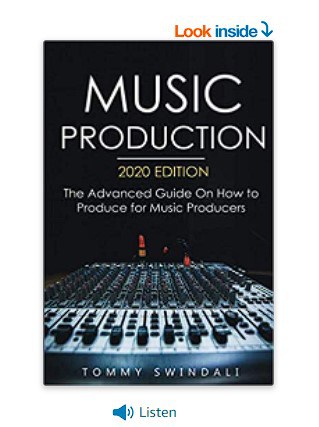
DESIGNED FOR: Home Recording
COMES WITH: All needed information to get started on music production
FEATURES: Informative book you can go back to again and again
Music Production
2020 Edition
When you check the price above, you’ll see there are loads of great places to buy this item. Our personal favorite is Gear4music.
It is the largest music retailer in the UK and fast becoming the most respected online music shop in the US too. Their customer service is excellent, they have competitive prices, really fast shipping, and usually have the longest guarantee.
Most professional musicians use Gear4music, so there is no reason why you shouldn’t too!
- Great lessons and principles for mixing and mastering
- Not everyone enjoys books
The professional musician who wrote this article combined many things,
from the product build, manufacturer’s reputation through to feedback
from other users, to create our famous TedScore™.
Learn about sound design
Write a basic song
A good way to get the ball rolling, especially if you’re new to music production, is to start basic.
Writing a simple song may not sound like the most intellectually or artistically appealing thing to do, but it will get the ball rolling and give you a chance to learn your craft.

And at the end of the day, that’s what this is all really about.
Try writing a basic verse-chorus-verse-chorus pop song. Try writing a simple 32 bar jazz standard. Try writing a simple version of anything that appeals to you.
But if you’re stuck for ideas, here are a few other things you could try.
Remakes
Remixes
Perform your arrangement
A great way to learn is to have your own music performed. This gives you the chance to get some objective distance from your work. To really step back and hear what works and what doesn’t is a vital part of the creative process.
Try asking your friends, colleagues or members of your school band to play your recorded music and see for yourself if it sounds good.
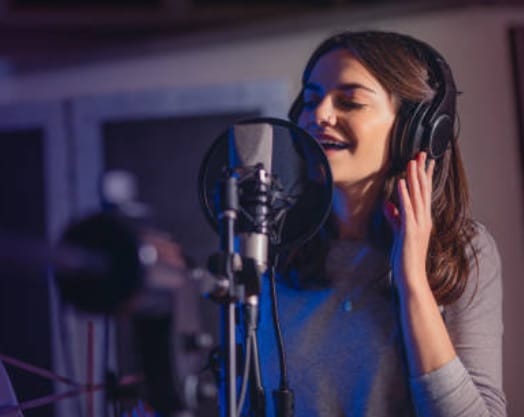
Get feedback from your listeners
Feedback is king. As a producer, you want your own music to resonate with an audience. So if you already have an audience on Spotify, YouTube or another platform, ask them what they do and don’t like about what you do.
The feedback can be harsh, but it will only help to sharpen your instincts for your next music production.

Practice makes perfect
It may be dispiriting at times but keep going even when there are setbacks.
The more you can go through the process of writing music, the more you’ll be able to apply what you’re learning.
Practice really does make perfect.

Build relationships with other producers
There are many great online communities for producers. Some are free such as Facebook groups or discussion posts on Reddit.
Others will come with paid products such as Splice.
However, all of these communities will provide you with the opportunity to meet new producers, share knowledge, trade ideas, get feedback on your work and broaden your horizons.
Upgrading your equipment
The world of production often moves very quickly, and you’ll need to upgrade your equipment like sample libraries, interfaces, speakers and other software as often as you can to keep pace with the market.
Learning how to use all these new things is also another challenge.
For this reason, it’s a good idea to join some sort of producers community so you can keep up to date with what’s current.

How to get started in music production
Summary
It may not be a pretty explanation, but the best way to get started as a producer is to simply get your hands dirty and get stuck in.
There’s no right or wrong way to do it or to approach it.
Just join a community, get the gear you need and start making music.
FAQ's
You’ll need to buy all the relevant gear and software listed above, learn how to use it and then just get your hands dirty and get stuck in!
Yes, you can, but it’s a much longer road to mastery. Try going to a teacher, enrolling on a course or buying a good production book.
Technically, you don’t need any. If you write good music and you can let people know about it, then you’ll attract attention. Think of a good song as being the equivalent of a good qualification.
That depends on what you buy to produce with. If you’re a new producer, I’d suggest not spending too much money but if you’re a seasoned pro, then go mad if you can afford it!
Yes, you can teach yourself music production. There are many online resources, tutorials, and courses available that can help you learn the necessary skills and techniques. However, it may take more time and effort compared to taking a formal course or working with a professional teacher.










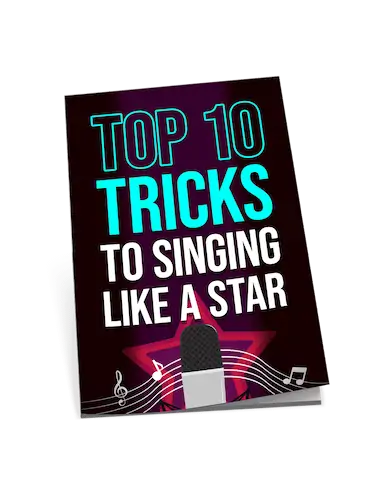
Hugh Richardson, you’ve really nailed the essence of starting out in music production. From your rundown on the necessary tools to the encouragement for building relationships with other producers, it’s spot-on advice. Speaking from experience, transitioning from DJing to producing can feel overwhelming, but your guide underscores the importance of patience and persistence. Especially appreciated the emphasis on getting feedback and practicing. It’s a long road from amateur to pro, but genuinely fulfilling to create music that resonates with others. Thanks for the motivating read!
While this article certainly makes music production seem accessible, I find it hard to believe that someone with zero background in music can just pick up a DAW and start producing music that’s actually good. How many people actually succeed without any formal training?
Hey Sylvia_R, it’s definitely possible to create great music without formal training. Many producers start as novices and learn through practice. The key is resilience and continuous learning. Don’t give up!
love the part about sound design, that’s where the real fun begins
Hey, interesting read! I’m kinda new to this whole scene, but really passionate about making my own music. You mentioned studying music theory as a bare minimum requirement – any advice on where a complete newbie should start? Thanks in advance!